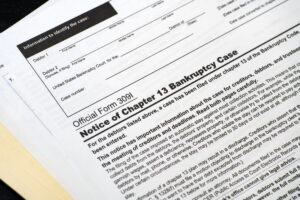One common misconception people have about bankruptcy is that they’ll lose their property. The fact is, most people will keep all of their property, including their car and home. The primary purpose of the Bankruptcy Code is to provide debtors with a new financial beginning. Taking all of their property would have the opposite effect.
The laws that allow debtors to keep certain property through the bankruptcy process are called “exemption” laws. Each state allows debtors to keep different amounts of property. Colorado’s personal property exemption rules have been set out in Colorado Revised Statute Section 38-54-102.
Common exemptions and their amounts (as of September 2011) include:
- Automobiles – $5,000
- Clothing – $1,500
- Jewelry – $2,000
- Household goods – $3,000
- Tools of the trade – $20,000
- IRA, 401(k), or other qualified retirement plan – All amounts
- Homestead exemption – $60,000
Keep in mind that the way in which your property is valued for each exemption may be different. For example, for household goods, you would use the price you would get at a garage sale or similar sale. For car values, you would refer to the NADA or Kelly Blue Book trade-in or private sale value. Also, except for the homestead exemption, these amounts will be doubled if you file a joint petition with your spouse.
Of course, not all property is exempt. If you have multiple vehicles, valuable works of art, or other luxury items, you may have to surrender those items to the trustee so that she can auction them off and distribute the proceeds to your creditors. You may have the option of buying them back if you have the ability to do so. Through careful pre-filing planning, you may be able to sell those items and convert the proceeds to exempt property. If you decide to sell anything before you file bankruptcy, you want to make sure that you get market value. Also, it’s probably a good idea to sell it to a non-family member.
A bankruptcy attorney’s job is to guide you through the bankruptcy process and make sure that you keep most, if not all, of your property. If you are thinking about bankruptcy and are concerned that you’ll lose everything, schedule a free consultation with a bankruptcy attorney to learn more about Colorado bankruptcy exemptions. Our consultations are no obligation and don’t require you to retain us. If we don’t think bankruptcy is your best option, we’ll tell you. If we don’t think we’re the best law firm for your needs, we’ll refer you to someone else. Our primary concern is that you problem gets solved.


